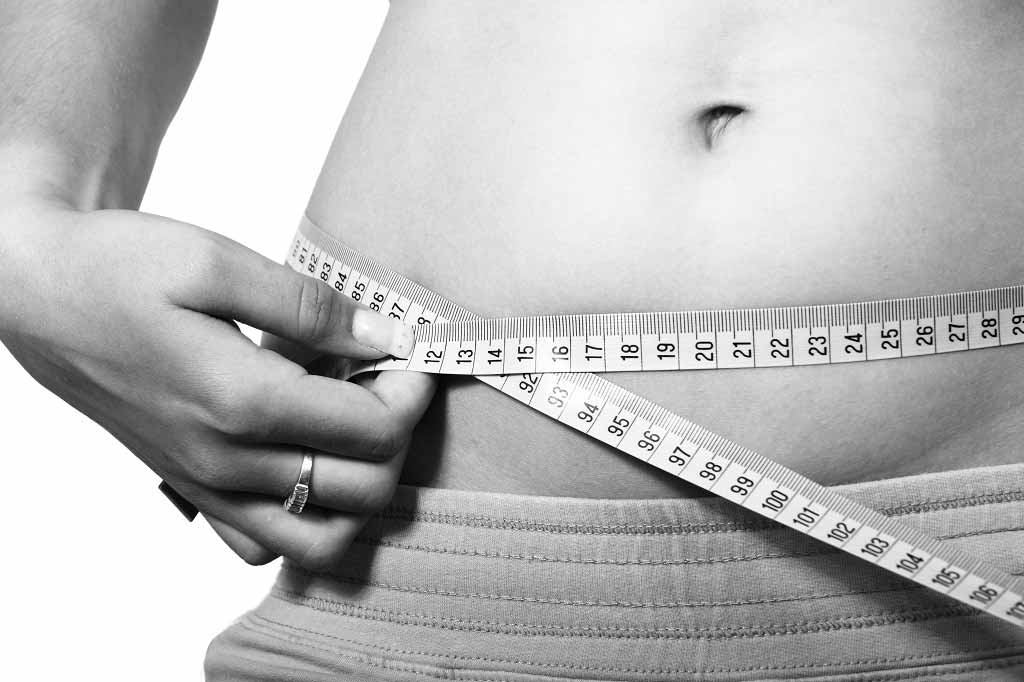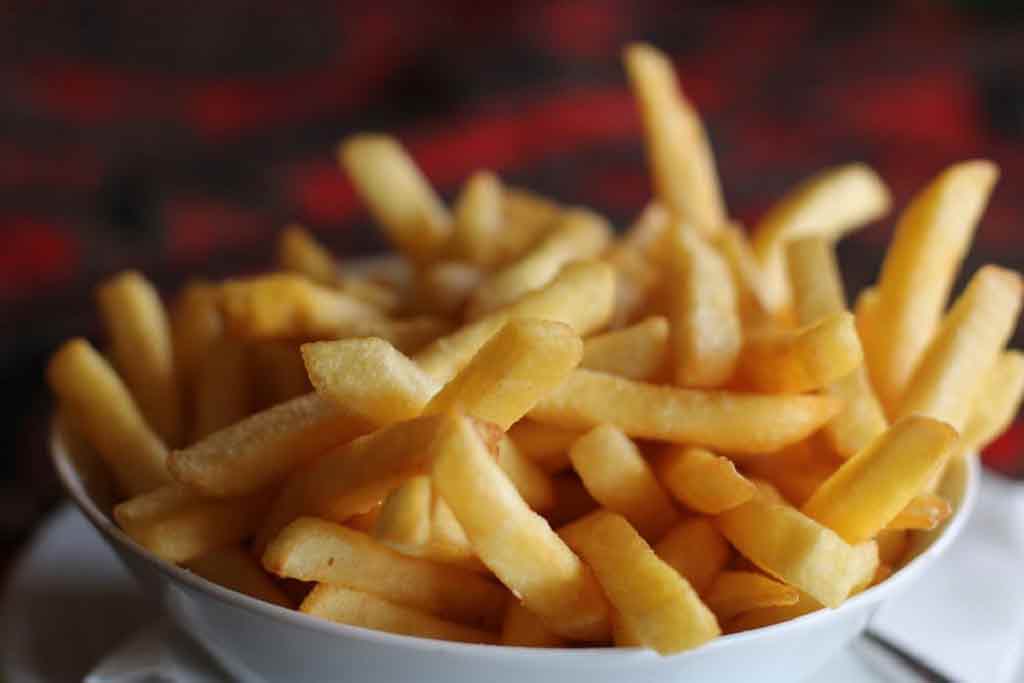Hormone cocktail treatment 'could be alternative to weight-loss surgery'
Obesity

"Miracle Flab Jab - A NEW weight-loss jab could help overweight patients shed 10lbs in just four weeks," The Sun reports.
"Miracle Flab Jab – A NEW weight-loss jab could help overweight patients shed 10lbs in just 4 weeks," is the front-page headline in The Sun.
Researchers in London carried out an experimental study in which 15 people who were obese and had type 2 diabetes or pre-diabetes (where blood glucose levels are higher than normal) were hooked up to a pump delivering a mixture of hormones for 12 hours a day, over 4 weeks. This type of pump-delivered medicine is known as an infusion.
The study was designed to investigate how these hormones – which are raised in people who have had weight loss surgery – contribute to weight loss. It was not designed to test a "weight loss jab", although the researchers conclude the infusion could be developed as an alternative to surgery for those unable to have the operation.
People in the study lost more weight (4.4kg or 9.7lbs) than those who had a saline drip for comparison (2.5kg or 5.5lbs), but they did not lose as much weight as those who had weight loss surgery or who undertook a very low calorie diet for 4 weeks. However, the infusion treatment does have the practical advantage of being far less intrusive than surgery.
Researchers also looked at how the hormone infusion affected people's glucose and insulin levels, and calorie intake. Glucose and insulin levels were better regulated and, on average, calorie intake was reduced by around 300kcal a day.
As this was a very small study it's far too early to start claiming that this treatment is getting close to (as one commentator put it) "the Holy Grail of tackling weight loss". It's unclear how effective, or more importantly, how safe, the treatment would be when used in a larger population.
It's also important to point out that most people can lose 4kg over the course of 4 weeks through a combination of restricted diet and exercise. The NHS weight loss plan could help you achieve this goal.
Where did the story come from?
The researchers who carried out the study were from Imperial College London, Imperial College Healthcare NHS Trust, and the University of Copenhagen. The study was funded by the UK's Medical Research Council and published in the peer-reviewed journal Diabetes Care on an open access basis so it's free to read online.
The Sun's report over-hypes the study, referring to the "miracle" infusion as "the best anti-obesity treatment yet" and saying it "comes with no side effects". The study was too small and too short to properly assess the safety of the hormone infusion, which is not being marketed as an anti-obesity treatment.
The Sun's use of the term "jab" could also give the impression that the hormonal treatment could be delivered by just a single injection. But the reality is that it requires a person to be connected to a pump for 12 hours a day.
The Daily Mirror and the Mail Online described the treatment as "fat-burning hormones", which is not accurate – the hormones make people feel full so they eat less, rather than burning fat, although they may help the body use glucose more efficiently. The Mirror did not include results from the diet or surgery group.
What kind of research was this?
This was a small randomised controlled trial (RCT) comparing saline infusion with an infusion of 3 hormones. RCTs are usually the best type of study to find out which treatment works best. However, the study was too small to be sure these results are reliable. The comparison with weight-loss surgery and low calorie diet groups were not part of the RCT, because people were not randomly assigned to them. They were used instead as unblinded non-randomised comparisons.
What did the research involve?
For the RCT, researchers recruited patients by advertisements and from their clinic at Hammersmith Hospital in London and randomly assigned them to saline solution or a combination of 3 hormones linked to appetite: glucagon-like peptide 1, oxyntomodulin and peptide YY, together known as GOP.
The researchers aimed to have 20 subjects in each study group to ensure the study was big enough to detect a "minimal clinically significant difference" of 2.5kg weight loss between groups. However, they only managed to recruit 15 people for the GOP group and 11 for the saline group, partly because of technical problems with the infusion pump.
Everyone was weighed and tested for body fat, muscle mass and insulin response at the start of the study. Participants were told to hook themselves up to the pump 1 hour before breakfast and run it for 12 hours, disconnecting it after the last meal of the day. They did this for 28 days.
The participants were weighed and had other tests repeated at the end of the study.
The other comparison groups included people already scheduled to have weight reduction surgery, in this case the standard Roux-en-Y gastric bypass operation, and volunteers recruited by advertising or at the Hammersmith Hospital clinic to take part in the 28-day 800kcal a day Cambridge Weight Plan diet.
What were the basic results?
Weight loss
The study found:
- people in the hormone infusion (GOP) group lost on average 4.4kg
- people in the saline group lost on average 2.5kg
- people in the weight loss surgery group lost on average 10.3kg
- people in the low calorie diet group lost on average 8.3kg
- the difference between the GOP group and the saline group was 1.9kg, which is less than the "minimal clinically significant difference" of 2.5kg, which the researchers said they wanted to detect at the start of the study
Calorie intake
Calorie intake over 24 hours was reduced by 292.7kcal for people who were infused with GOP and 168.5kcal for people who were infused with saline. The figures for gastric bypass were not comparable because people were not able to eat normally for 12 weeks after surgery, and people on the restricted calorie diet were not free to eat as many calories as they wanted to.
Diabetes measures
Researchers looked at people's blood glucose levels (which normally go up after a meal as the food is broken down and digested) and their insulin levels (which go up shortly after the glucose levels to allow for glucose to be transported and stored). One of the problems with diabetes is that insulin becomes unable to deal with "spikes" in glucose after meals.
For people having weight loss surgery, spikes in blood glucose were followed by spikes in insulin. However, for people taking GOP hormones, the spikes in both glucose and insulin were smoothed out, suggesting a healthier metabolic response. As expected, saline made little difference to glucose and insulin.
How did the researchers interpret the results?
The researchers said: "GOP infusion at home was feasible and well tolerated over a 4-week period" and "led to a substantial mean weight loss of 4.4kg".
They said the study showed that GOP hormones "may be responsible for some of the glycemic improvements and some of the weight loss benefits from [weight loss] surgery", and that infusion with GOP "is a viable alternative to RYGB [weight loss surgery] for the treatment of diabetes, with favourable effects on body weight, in patients who may not be able to have bariatric [weight loss] surgery".
Conclusion
As a rule of thumb, it's wise to assume that anything described as a "miracle" cure is being over-hyped. That's certainly the case in this small study of an experimental protocol, which the researchers said in the study report was "not a clinical trial of an investigational medicinal product".
It's important to remember that the study was designed to better understand how weight loss surgery works, not to test a potential treatment. The small number of people who had the GOP infusion (15) and the relatively short time it was used for are insufficient to be sure it's either safe or effective. There would need to be much bigger trials with longer follow-up periods before GOP infusion could be marketed as a treatment for obesity and diabetes.
It's difficult to make comparisons with the other weight loss treatment groups, as people were not randomly assigned to them, but either volunteered for the low calorie diet or were already waiting to have weight loss surgery. However, it's interesting to note that the diet group lost almost twice as much weight over 4 weeks as the GOP infusion group. The weight loss surgery group lost the most weight, which suggests that the effects of raised GOP hormones are not the only mechanism leading to weight loss for people having surgery.
While weight loss surgery undoubtedly works, it's major surgery with significant side effects and should not be undertaken without trying other methods first. Diet and exercise should always be the first thing to focus on if you need to lose weight for your health.
While this study tells us some interesting things about how these hormones affect weight loss, glucose and insulin levels, it does not mean we have a "miracle flab jab" to treat obesity.
Find out more about the NHS Weight Loss Plan, eating a balanced diet and exercise.






 Subscribe
Subscribe Ask the doctor
Ask the doctor Rate this article
Rate this article Find products
Find products




